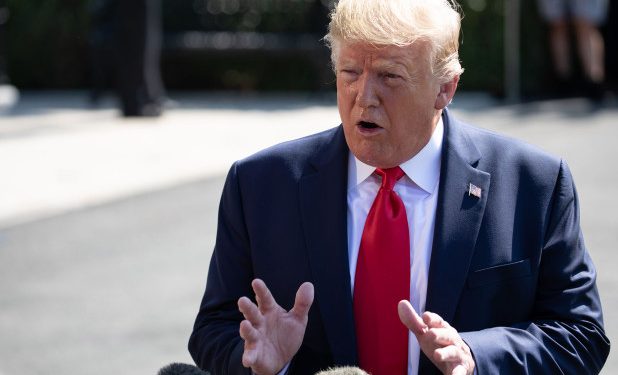Washington: A plan presented by US President Donald Trump’s administration to limit access to citizenship and permanent residence for migrants who receive public assistance would undermine democracy and penalise parents for seeking help to feed their children, immigrant and advocacy groups said.
Trump’s policy presented Monday draws on a long-discarded notion of excluding migrants who seem likely to become a “public charge” by virtue of dependence on government programs such as food stamps, housing vouchers and health-care subsidies, Efe news quoted the groups as saying.
Under the new rule, a legal immigrant would be classified as a public charge if he or she receives one or more from a list of public benefits for a total of 12 months over a three-year period.
“Basically, it is penalising children, access to food for children of immigrant families with few resources,” Isaias Guerrero, an activist with the Fair Immigration Reform Movement (FIRM), told Efe.
The initiative likewise represents an attack on the democratic system that “has created these programs to help families get ahead.”
Cecilia Munoz, vice president for Public Interest Technology and Local Initiatives at New America, said the Trump administration was “using policy to eliminate the eligibility for many of those who typically obtain visas and are successful in the United States.”
“And that is because we have an administration that really wants to reduce immigration and is using every possibility to do so,” said Munoz, who served eight years as a senior adviser to Trump’s predecessor, Barack Obama.
Her analysis was shared by Carlos Gutierrez, who was commerce secretary under former President George W. Bush.
The rule announced Monday “sends the message that we don’t want immigrants,” the Cuban-born business executive and consultant said. “It’s an anti-immigrant policy, it’s a policy against people who are different. I think they want blonds, I don’t know,” Gutierrez said. “But we see that this is an administration that doesn’t like immigrants and that’s going to be a problem. I don’t know where it will stop.”
Andrew Selee, president of the non-partisan Migration Policy Institute (MPI), said that policies toward immigrants will have an impact on the future of the US economy. “This country has always benefited from the flow of people from all over the world. It’s a central part of the innovation, of the economic dynamism of this country, of the labour force,” he said.






































